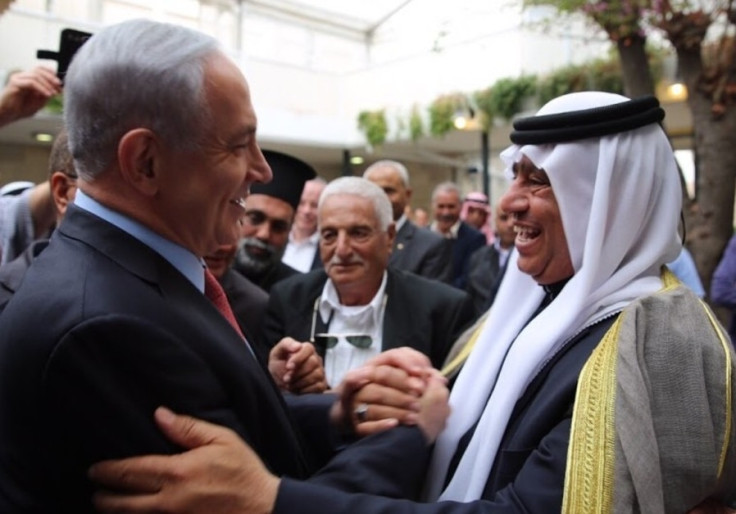Just 13% of Israeli Jews say they would be happy with an Arab as a neighbour
Study also finds a minority of Jews do not support using state land to increase the size of Arab communities.

Just 13% of Israeli Jews are willing to have Arabs as neighbours, a new study has found.
While the statistic provides a bleak portrait of coexistence between the two groups in Israel, the same study also found the vast majority of Israeli Jews and Arabs supported living together in a shared society.
The findings, published on Tuesday (19 December), are based on a survey of more than 500 Jews and Arabs living in Israel by The Center for a Shared Society at Givat Haviva.
Arabs make up about 20% of Israel's 8.8m population, with frequent complaints they are treated like second class citizens.
Yaniv Sagee, director of Givat Haviva, told the Jerusalem Post that "there is still not enough maturity and understanding among the Jewish public for practical steps for living together."
He continued: "The majority of the Jewish public is unwilling to relinquish resources and positions of power to promote equality for Israel's Arab citizens, and to build deeper partnerships in order to promote equality for Arab society.
"On the other hand, the overwhelming majority of the Arab public aspires to greater integration into government systems."
According to the study, 84% of Arabs and 64% of Jews in Israel support the idea of coexistence, with majorities in both groups agreeing education should be geared towards promoting shared life.
More than half of Jewish respondents also said they had visited an Arab neighbourhood over the past year, while 56% of them wanting their children to learn Arabic from a young age.
For Arabs, more than 90% said they had visited a Jewish neighbourhood in the past year, with 84% interested in teaching their children Hebrew.
But a significant gap emerged when it came to the question of improving integration in government and public life.
While 63% of Arabs agreed it is important for Israel to increase the representation of Arabs in Israeli society, only 10% of Jews supported the idea.
Some 70% of Jews also said they were against allocating state land to increase the size of Arab communities.
Mohammed Darawshe, director of planning, equality and coexistence at Givat Haviva, said the results "show confusion among the public regarding the social integration of Arab citizens."
"On the one hand," Darawshe noted, "there is a willingness to cooperate... on the other hand, there are many reservations about land and social integration."
The idea of voting for a Jewish-Arab political party also split opinion, with 35% of Jews supporting the idea compared with 72% of Arabs. This is despite both groups saying current political parties negatively contributed to coexistence.
Darawshe added: "The study shows that the need for change should be based on strengthening successful models of a common society, exposing them to the public, and on the need for leadership that will lead the public – who over the years has stopped dreaming and believing in a common society, mainly as a result of the continuation of the Israeli-Palestinian conflict."
The survey saw researchers interview 505 Israelis – 429 Jews and 76 Arabs, representing the per-capita demography of the country.
The study's full findings will be presented at the Knesset Advocacy Group for the Advancement of Shared Living between Jews and Arabs on Tuesday (19 December).




















